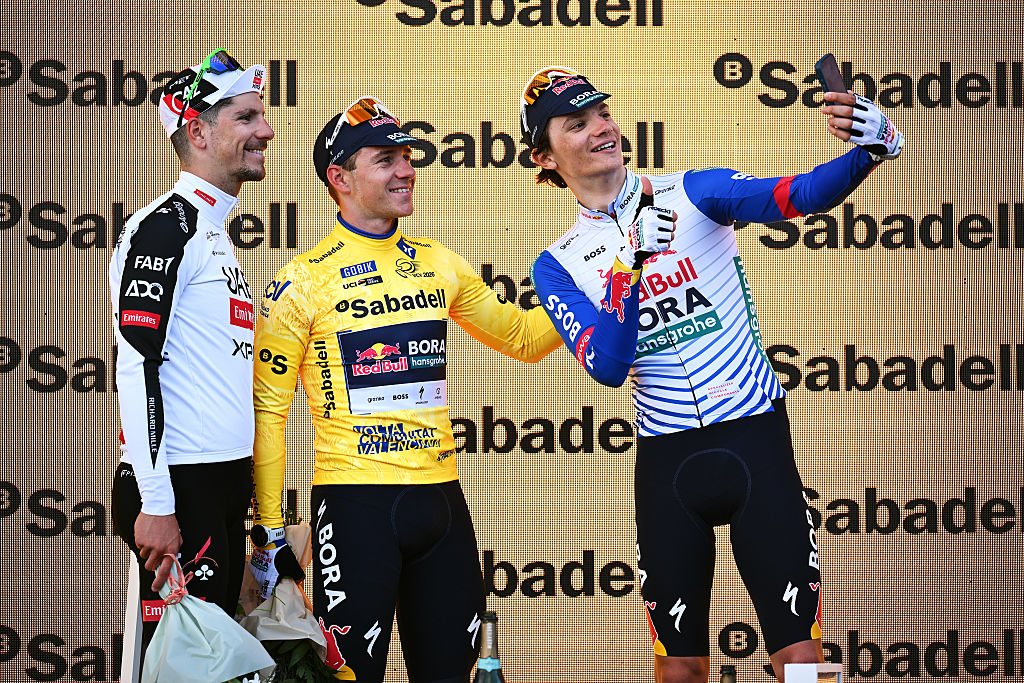What sport are they watching?
Commentary by Gerard Knapp and John Stevenson The UCI's decision to eliminate the men's and women's...
The latest race content, interviews, features, reviews and expert buying guides, direct to your inbox!
You are now subscribed
Your newsletter sign-up was successful
Commentary by Gerard Knapp and John Stevenson
The UCI's decision to eliminate the men's and women's sprint time trials has caught administrators completely by surprise, as most thought it would be the men's and women's points races that would be sacrificed to make way for BMX.
The process imposed by the International Olympic Committee is that to allow BMX events to be held in Beijing in 2008, cycling must take out two existing events. The theory is that it will reduce athlete numbers and keep a lid on costs for the host nation.
However, it's a flawed and illogical process by any measure. Like the entry of MTB events at the expense of the road team time trials, it takes more money to build new venues and only increases the costs for the host nation, whose only saving is that they don't have to forge two extra sets of medals. Who are they kidding?
There could be some political brinkmanship here by the UCI; killing the 'kilo' will lead to justifiable outrage. It may force the IOC to reconsider its conditions, because adding BMX will certainly increase the costs of staging an Olympics.
Instead, there is a cruel sacrifice of two events that are absolute tests of the all-bets-are-off and no-excuses racing that is the heart and soul of track cycling.
This is like athletics dumping the 100 metres sprint. And then there are we poor punters. Look at what we have just lost.
The latest race content, interviews, features, reviews and expert buying guides, direct to your inbox!
The countdown of riders in the men's 'kilo' and women's 500 metre time trials, as they each have one crack at putting down the fastest time, can be one of the most exciting events in a track cycling program, offering this unique mixture of suspense and action unlike any other event. It's in the "can't miss" category.
Over the years, we have seen and heard the crowds build their support for their favoured rider as he or she walks up to the starting gate, with chanting around the velodrome, clapping, stamping of feet. The tension is palpable. Eventually, and usually with some coaxing from the announcer, the crowd falls silent as they all join the rider and wait for the five-second countdown until the gun fires.
And when it does fire, the energy from the crowd almost matches that of the rider as they burst out of the gate, every sinew of muscle straining to crank their huge gears up to speed. The men snort, hiss and wheeze as these human beings pump out over two kilowatts of power into the pedals. No rider in this event crosses the line ever feeling 'fresh'. They're cooked, and at an Olympics, they can condense four years of training into less than a minute of sustained effort.
This is track cycling is its most purest form. Man or woman against the clock, and the crowd watching every pedal stroke, with an eye on the clock as they also estimate whether the rider is going to make the best time.
These are not obscure, outdated and irrelevant events. They are highlights. Every Briton would have leapt for joy when the flying Scotsman, Chris Hoy pounded around the boards in the Athens Velodrome and bettered - yet again - this incredible succession of record-breaking rides in the 2004 kilo. Then there was Anna Meares' world-record breaking ride in the women's 500m time trial. This journalist cannot recall a more animated and genuinely excited Phil Liggett describe that one, and our 'voice of cycling' has seen his share of bike races.
Indeed, the kilo is one of the foundation events from the first modern Olympics.
This is not to deny BMX its place in an Olympics. Indeed, bring it in. But the UCI's decision to cut these two track events, and leave female sprinters with only one event, is hardly consistent with maintaining growth of the sport, and helping host nations keep a lid on costs. It won't cut costs, it won't reduce the number of athletes, all it will do is take away two of track cycling's most prized medals.
In terms of athlete numbers, the sprinters that rode the kilo and 500m in Athens all doubled up for other events. Their successors will continue to fill the athletes' village, and they'll all still need a velodrome, an expensive facility that most Olympic host cities struggle to justify after the Games.
Adding BMX therefore simply increases the number of athletes and venues that cycling requires at the Olympics. It's as through the UCI has deliberately given the finger to the IOC. "Right, we have to drop a discipline? We'll drop one that saves you exactly no money at all. Ha! Take that!" Oookayy...
The decision fails to achieve the objective. Simon Clegg, the chief executive of the British Olympic Association, told the Times newspaper, "My reaction is one of considerable disappointment because the one kilometre time-trial is an event in which we have enjoyed so much success.
"However, we have to accept that if a new discipline comes into the Games then the international federation has to remain within its numbers and effectively rejig its programme."
This is what we journalists call, "absolute cobblers."
As a representative of the people who've paid good money to watch these amazing athletes in action, the UCI and the IOC are wrong. This is our sport they are killing, and who gave them the right to do that?
